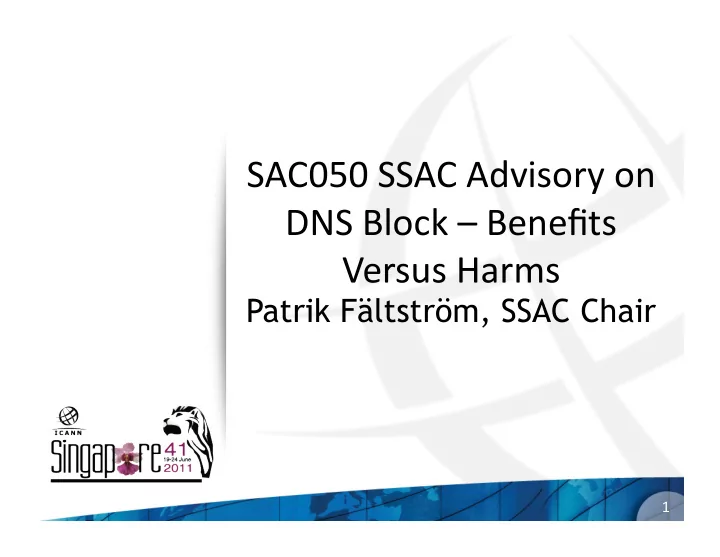

SAC050 SSAC Advisory on DNS Block – Benefits Versus Harms Patrik Fältström, SSAC Chair 1
Background • Blocking or altering responses to Domain Name System (DNS) queries is increasingly prominent. • Technical approaches to DNS blocking are intended to affect users within a given administrative domain, such as a privately or publicly operated network. 2
Background, Continued • Preventing resolution of the domain name into an IP address will prevent immediate connection to the named host, although circumvention techniques may allow connection to the intended host anyway. 3
Principles To avoid collateral damage or unintended consequences: • Impose a policy on a network and users over which an organization exercises administrative control. • Determine that the policy is beneficial to the organization’s interests and the interests of its users. • Implement the policy using a technique that is least disruptive its network operations and users. • Make a concerted effort to do no harm to networks or users outside its policy. 4
First, Do No Harm • Consider the possible harm that an intervention might cause. • Do not adversely affect Internet users outside of the X organization’s policy domain. 5
Conclusion • All technical approaches to DNS blocking and attempts to circumvent will impact: • Security and/or stability of users and applications; and • coherency or universal resolvability of the namespace. 6
Role for the SSAC The SSAC: • Cannot draw a line between "good DNS blocking" and "bad DNS blocking" in the DNS hierarchy. • Can suggest guidelines to use in evaluating which approaches to blocking are likely to incur the fewest unintended consequences and least harm outside the blocked domain. 7
Recommend
More recommend